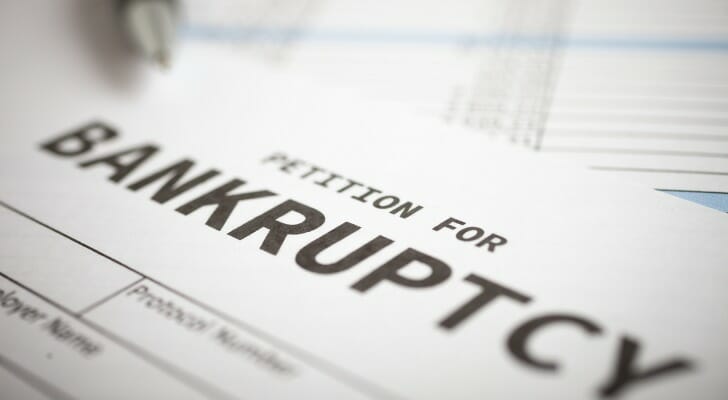A bankruptcy can seriously hurt your credit score, making it difficult to get approved for new lines of credit and lower loan interest rates. While bankruptcies are undoubtedly harmful, they won’t stay on your credit report forever. How long they remain on there, though, depends on which type of bankruptcy you filed for. Generally speaking, a bankruptcy will stay on your credit report for up to 10 years.
Do you have some money to invest or save for retirement while you rebuild your credit? Speak with a local financial advisor today.
How Long Do Bankruptcies Stay on Your Credit Report?
When it comes to individual bankruptcies, there are two main ways you can file. Each of these have their own advantages and disadvantages, and they are better used in specific scenarios. Here’s a breakdown of each:
Chapter 7 bankruptcy: Chapter 7 involves liquidating your assets in order to pay off your debts. In an ideal world, you won’t owe any money after filing for Chapter 7 bankruptcy. A trustee takes stock of your eligible assets, liquidates them and gives those funds to creditors.
Chapter 13 bankruptcy: A Chapter 13 bankruptcy is less intrusive than Chapter 7. If you file for Chapter 13, you retain all of your assets. However, your debts are then consolidated and you have to repay them over a three- to five-year period.
Chapter 7 and Chapter 13 bankruptcy are not only functionally different, they also stay on your credit report for different lengths of time. More specifically, a Chapter 7 bankruptcy remains on your report for 10 years, whereas a Chapter 13 bankruptcy stays on your report for seven years. If your bankruptcy doesn’t automatically fall off your credit report after seven or ten years, you should dispute the error.
How to Check Your Credit Report Following a Bankruptcy
It’s always good to keep a close eye on your credit report and score. This becomes even more important when you have a bankruptcy on your record. There are many different websites that allow you to access your credit report, but the only truly free option is AnnualCreditReport.com.
To find your report, you’ll need your Social Security number, address, full name and date of birth. Once you pass a few security questions, you’ll receive a copy of your report in the form of a PDF.
Bottom Line

Bankruptcies are not a small deal, and they can affect your credit score and your credit report for several years after you file. Chapter 7 bankruptcies stay on your report for ten years, whereas chapter 13 bankruptcies stay on your report for seven years.
It’s important to know the implications of a bankruptcy on your credit profile and financial goals before officially deciding to file.
Tips for Rebuilding Your Credit After a Bankruptcy
- Getting your credit profile back on track following a bankruptcy can be tough. Consider working with a financial advisor to figure out ways to get started. If you don’t have a financial advisor yet, finding one doesn’t have to be hard. SmartAsset’s free tool matches you with up to three vetted financial advisors who serve your area, and you can interview your advisor matches at no cost to decide which one is right for you. If you’re ready to find an advisor who can help you achieve your financial goals, get started now.
- A credit card can be a valuable tool in helping you rebuild your credit after a bankruptcy. You may need to consider a secured card to get started, but SmartAsset has credit cards guides for all types of uses as well.
Photo credit: ©iStock.com/ljubaphoto, ©iStock.com/Minerva Studio
